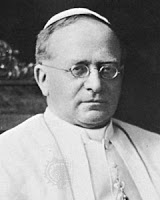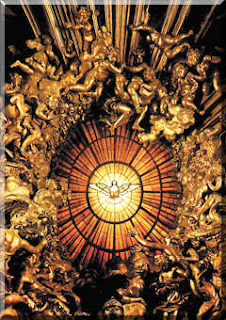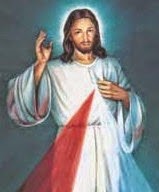Senior Priest
Diocese of Lansing
 (Click here for today’s readings)
(Click here for today’s readings)Christ’s resurrection from the dead immediately caused controversy brought on by those who sought to suppress that event. That controversy continues even in our time some 2000 years later. There are those in our own times who for their own various reasons want to discredit the resurrection of Jesus Christ from the dead. The leaders of ISIS torture and put to death Christians who, like the Apostles, are witnesses to the resurrected Christ. Just the apostles told the members of the Sanhedrin, Christians in the Middle East are by their lives saying: “we are witnesses of these things.” Christ’s resurrection from the dead just won’t go away.
The immediate reaction of the Jewish religious authorities is presented to us in the first reading of today’s Mass where it is reported:
When the captain and the court officers had brought the apostles in and made them stand before the Sanhedrin, the high priest questioned them, “We gave you strict orders, did we not, to stop teaching in that name? Yet you have filled Jerusalem with your teaching and want to bring this man’s blood upon us.” But Peter and the apostles said in reply, “We must obey God rather than men. The God of our ancestors raised Jesus, though you had him killed by hanging him on a tree. God exalted him at his right hand as leader and savior to grant Israel repentance and forgiveness of sins. We are witnesses of these things, as is the Holy Spirit whom God has given to those who obey him.In our own country these days we know of those who strive to keep the Christian message out of public sight and hidden away as mere private opinion.
The words “We are witnesses of all this” apply to you and me just as much as they applied to the disciples of Jesus. We, too, are His disciples. What Jesus said and did with them He says and does with us. All of Christ’s disciples stand together in the same place as Christians who witness to the risen Christ. A witness re-presents events, transactions, words and ideas, making them present again and that is what our lives should be all about. What, then, does your life represent?
When you wear your high school or college letter jacket around town you are representing your school and all that your school stands for. When folks see you act they are being presented with what your letter jacket stands for and what you say your school stands for. All that you do reflects not just on you, it reflects on your school and your family. You, each one of you here, can be more than your self. You can stand for and represent something than just you. When people think of you their minds can see a greater reality to which you give witness. Your life can testify to things that make us all better, that call us to ideals. Or your life can bring degrading things to the minds of others, things that devalue and cheapen what it means to be a human being and what it means to be a person who is known as a Christian, a follower of Jesus Christ. Perhaps we may feel unworthy or in adequate or otherwise not up to the task. Certainly St. Peter did. But our feelings ought not to get in the way. We have today’s gospel account to reassure us. Jesus will feed us the Bread of Life, the food to give us strength and courage. Holy Communion fills us with the power of God.
Just as the apostles who were going about their daily work of fishing, we likewise will be going about in our daily work while living our daily lives without entering into arguments and debates with others over religious beliefs. That is the arena in which we find ourselves. Debates are useless. Few of them are ever won. We all realize that especially in the light of those awful debates we are enduring during this year’s presidential election cycle. I will be so happy when they are over! Christian witnessing is more than just winning arguments or debates.
The most effective way of witnessing is found in the way we quietly live our lives. It is found in the values we hold and live by. Just being here for Mass and observing our holy days is witnessing. People notice what we say and what we do. They really notice what we don’t say and what we don’t do. You may think that isn’t very significant but it is. Just think of those people who have most influenced you. You probably don’t remember too much of what they said but you certainly remember their characters and who they were as persons. That is what effective witnessing is all about.
The way you treat others and how you speak about them is witnessing. The way you relate to others is witnessing. What you have to say about cultural values is witnessing. St. Paul in his letter to the Philippians had these words of advice for us:
Finally, brethren, whatever is true, whatever is honorable, whatever is just, whatever is pure, whatever is lovely, whatever is gracious, if there is any excellence, if there is anything worthy of praise, think about these things. (Philippians: 9)If you are diligent in guarding what is continually on your mind your actions will follow accordingly. That is why keeping our minds from being filled with junk and keeping up with frequent prayer is so important.
Being a witness to what Jesus Christ said and did isn’t that difficult after all. Having received the Bread of Life we can enter our days with the risen Christ abiding within us to strengthen and guide us along our various ways.










